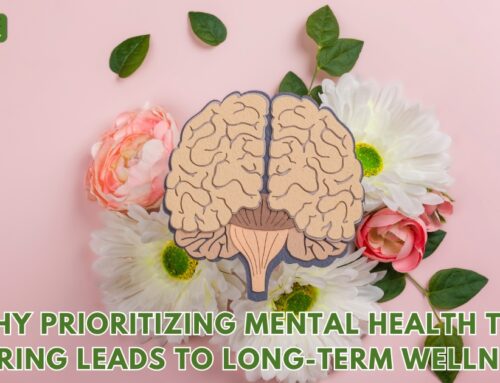The Role of Counseling in Suicide Prevention, How Therapy Can Make a Difference
Suicide is a heartbreaking and complex issue that affects individuals, families, and communities. According to the World Health Organization, over 700,000 people die by suicide every year, and many more attempt it. This is where counseling and therapy play a crucial role in suicide prevention. At White Oak Counseling and Recovery, we believe that counseling can make a significant difference in saving lives and providing hope to those in despair. In this blog, we will explore the role of counseling in suicide prevention and how therapy can be a vital lifeline for individuals struggling with suicidal thoughts.
1. Understanding the Role of Counseling in Suicide Prevention
- Identifying Warning Signs: Counseling helps in identifying warning signs of suicide, such as feelings of hopelessness, withdrawal from loved ones, and changes in behavior. Early detection is key to preventing a crisis.
- Providing Emotional Support: Therapy offers a safe and non-judgmental space for individuals to express their feelings, fears, and struggles. This emotional support can be life-saving.
- Building Coping Mechanisms: Through counseling, individuals learn healthy coping mechanisms to manage stress, anxiety, and depression. These skills can reduce the risk of suicidal thoughts.
2. Addressing Underlying Issues
- Mental Health Disorders: Many individuals who experience suicidal thoughts are struggling with mental health disorders such as depression, anxiety, or bipolar disorder. Therapy addresses these underlying conditions, providing appropriate treatment and support.
- Trauma and Abuse: Counseling can help individuals process and heal from past trauma or abuse, which may contribute to suicidal ideation. Therapists work with clients to address unresolved issues and develop healthier ways of coping.
- Substance Abuse: Substance abuse often co-occurs with suicidal thoughts. Counseling can help individuals overcome addiction and reduce the risk of suicide.
3. Creating a Safety Plan
- Personalized Safety Plans: Therapists work with individuals to create personalized safety plans that outline steps to take if they experience suicidal thoughts. This plan may include emergency contacts, coping strategies, and removing access to lethal means.
- Crisis Intervention: Counseling provides immediate crisis intervention for individuals in acute distress. Therapists can help de-escalate the situation and guide the individual to safety.
- Long-Term Support: Counseling offers long-term support to help individuals build resilience and reduce the likelihood of future suicidal thoughts.
4. Encouraging Open Communication
- Breaking the Silence: Therapy encourages open communication about suicidal thoughts, reducing the stigma associated with discussing these feelings. This can lead to early intervention and support.
- Family Involvement: Counseling often involves family members, helping them understand how to support their loved ones. Family therapy can strengthen relationships and create a strong support network.
- Community Resources: Therapists connect individuals with community resources, such as support groups, hotlines, and crisis centers, to provide additional support outside of therapy sessions.
5. Empowering Individuals Through Therapy
- Rebuilding Hope: One of the most powerful aspects of counseling is its ability to rebuild hope. Therapists help individuals see that their lives have value and that there are ways to overcome their struggles.
- Strengthening Self-Worth: Therapy works to improve self-esteem and self-worth, which can be protective factors against suicide. Individuals learn to appreciate their strengths and recognize their potential.
- Fostering Positive Relationships: Counseling helps individuals build and maintain positive relationships, which are crucial for emotional well-being and suicide prevention.
6. Types of Therapy for Suicide Prevention
- Cognitive Behavioral Therapy (CBT): CBT is an evidence-based approach that helps individuals challenge negative thought patterns and develop healthier ways of thinking.
- Dialectical Behavior Therapy (DBT): DBT is particularly effective for individuals with borderline personality disorder and suicidal thoughts. It focuses on emotional regulation, mindfulness, and distress tolerance.
- Group Therapy: Group therapy provides a supportive environment where individuals can connect with others who are experiencing similar struggles. This sense of community can be incredibly healing.
Conclusion
Counseling plays a critical role in suicide prevention by providing support, addressing underlying issues, creating safety plans, and empowering individuals to build healthier lives. At White Oak Counseling and Recovery, we are committed to making a difference in the lives of those struggling with suicidal thoughts. If you or someone you know is in need of help, please reach out. Therapy can be a powerful tool in preventing suicide and fostering hope, resilience, and recovery. Remember, there is always hope, and there is always help.





